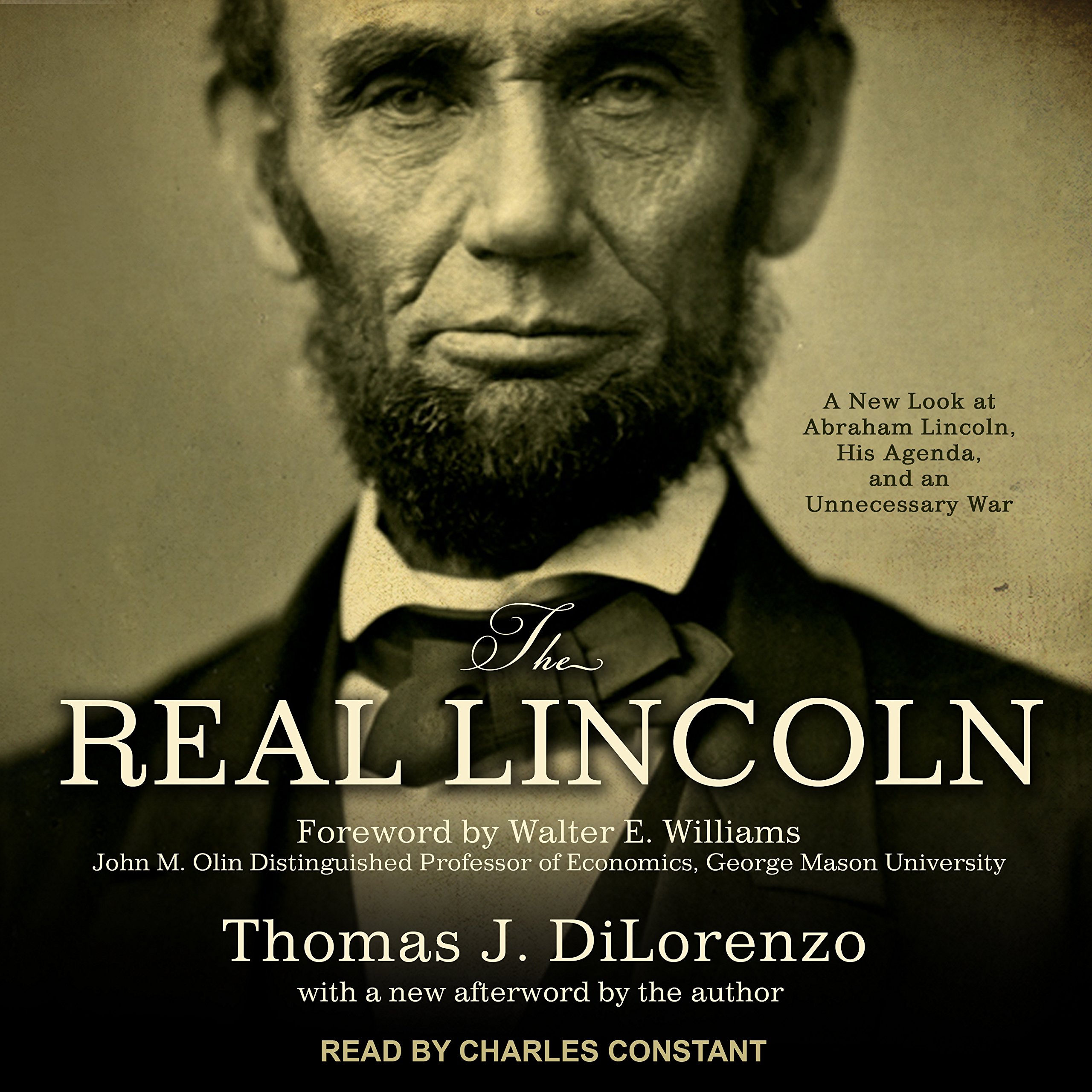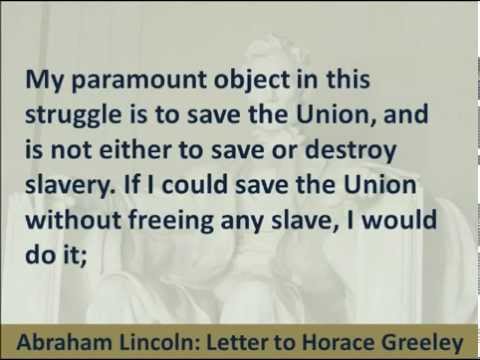 Before the secession of the Southern States the United States consisted of 34 states that were the masters of and the National government was their servant. Like the early Federalists, Lincoln wanted a much stronger central government than the one established in the Constitution. He knew that to in order to achieve his objective he would need to strip the states of their sovereignty.
Before the secession of the Southern States the United States consisted of 34 states that were the masters of and the National government was their servant. Like the early Federalists, Lincoln wanted a much stronger central government than the one established in the Constitution. He knew that to in order to achieve his objective he would need to strip the states of their sovereignty.
In order to save the Union, he had to violate the Constitution and invaded the Confederate States. Lincoln may have saved the Union, but he destroyed the republic in the process. Initially the war was not about slavery, it was about creating an all powerful national government to control the states and the lives, liberty and property of the people.

While it is true that the Civil War led the the abolition of slavery it was not Lincoln's primary and stated objective.
He made it clear in the first inaugural address that he had no lawful right and no desire to end the institution of slavery where it already existed. He did not wage the war to free the slaves, he waged it to prevent the secession of the southern states.
Lincoln did not want to end the institution of slavery in the south, he only wanted to confine it to the states where it already existed.

Replies
The government of the United States could have avoided the Civil War if they simply repealed the Fugitive Slave Law. If Lincoln had wanted to free the slaves, why didn't the National Government refuse to enforce the Fugitive Slave Law?
So pleased you are covering this topic. We've been so very brainwashed since the end of the so-called "civil war", or more properly, the War for Southern Independence and the War of Northern Aggression. But, to the victors belong the spoils--and the revisionist history books as well. If your readers haven't read "A Politically Incorrect Guide to the Civil War", "The Real Lincoln" and "Lincoln Unmasked", they really should. Anyway, just wanted to commend you for your efforts and this post in particular. Educational, indeed. Oh, and by the way, I blanch when I see that needless and entirely preventable war being characterized as a civil war. By definition, it was not a civil war which would involve two or more entities militarily struggling for control of the entire country and of the country's government. That wasn't the case in 1861. It was a war for independence. The CSA had zero interest in subjugating and controlling the union. They wanted to be left alone as a sovereign confederated constitutional republic. And, yes, their seceding from this voluntary union of States was--and is--lawful and in keeping with a sovereign's innate right to set its own course. Why weren't the CSA leaders tried and convicted of treason? Because it wasn't treason, and the sharper bulbs in the North knew that. The North didn't want to lose in court what they THOUGHT they had won on the battlefield. So, despite the fact that 700,000 Americans needlessly perished in that awful war, nothing has really changed, i.e. secession remains a perfectly acceptable remedy to federal tyranny and overreach. And as the stresses of oppressive government multiply today, I suspect we haven't heard the last of secession.
Thank you for your comments.
Any power or authority that was not granted to the National government nor prohibited to the states is reserved to the states and the people.
In the Declaration of Independence it authorized the people to alter or abolish their government if it becomes tyrannical. This right was one of the people's God given rights.
Forcing a woman to remain married to an abusive husband is as logical as forcing states to remain in a Union that violates the Constitution.
Throughout the war, he tried desperately to encourage blacks to move to Central America and Africa. So much for the sincerity of his Emancipation Proclamation, a cynical effort to legitimize his invasion of the CSA, this to dissuade European powers from siding with the South. He also did not want blacks to settle in newly minted States in the West, so his solution was to rid the country of them. His attitude toward blacks characterized 19th century thinking, so we shouldn't be surprised. Also, his noble Emancipation Proclamation freed only blacks in the States not in so[called "rebellion". Blacks in the North were expendable. Treacherous little fellow.
Since November of 2012 I have spent thousands of hours on my computer posting articles and videos to educate America on the principles of individual liberty and personal responsibility. I am operating on a shoestring with a cash flow of less than $1,000 a month and need some help to make ends meet. If you care please share so that I can continue in my efforts.
Please share my articles with everyone and help me educate America by making a donation at https://www.paypal.me/KeithBroaders
Keith Broaders
1230 N Street #510
Sacramento, Ca 95418